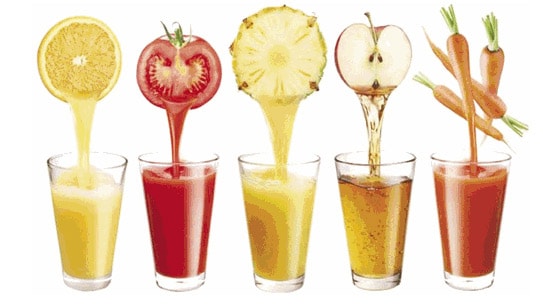Taking medicine with fruit juice increases toxicity
Many drugs when taken with fruit juice not only reduce the effectiveness of the drug but also increase the toxicity of the drug, or produce substances harmful to the body.
According to Traditional Medicine Practitioner Tran Hoang Bao, there are many types of fruit that are used in oriental medicine and are very effective. Moreover, eating fruit is also very good for everyone's health. However, many people who use fruit juice to take Western medicine have unintentionally harmed their bodies due to lack of knowledge.
Some types of fruit juice when used to take western medicine can reduce the effectiveness of the medicine, produce substances that are toxic to the body or increase the toxicity of the medicine.

Absolutely avoid taking medicine with fruit juice.
Physician Hoang Bao said: "Fruits have four main properties: cold, hot, warm, and cool. Each type of fruit will have one of those two properties. Therefore, taking medicine with an inappropriate fruit juice will prevent the medicine from being fully effective.
For example, when taking medicine that has a cooling effect, do not take it with hot fruit juices such as longan, lychee, durian, etc.
On the contrary, when taking medicine to dispel cold, you should not use cold fruit juices such as watermelon, pear or coconut...
Most fruit juices contain substances that can react chemically with medications. The chemical reactions that occur can either inhibit or amplify the effects of the medication.
Grapefruit, orange or apple juice will affect the body's absorption of the drug. Therefore, if you use these juices to take medicine, the treatment will not be effective.
In addition, grapefruit juice can also cause side effects. If you take grapefruit juice with statin drugs to treat lipid disorders, atenolol to treat high blood pressure... it will increase the toxicity of the drugs because naringin in grapefruit juice will inhibit the drug-metabolizing enzymes in the liver.
Orange juice and apple juice, if used to take medicine, can produce a toxic substance in the intestines that hinders the transport of medicine into the blood.
Lemon juice can make some antibiotics such as ampicillin, erythromycin, lincomycin lose their effectiveness. This is not good for the patient's health."
Physician Tran Hoang Bao also added: "Instead of using fruit juices, it is best to take medicine with boiled and cooled filtered water.
Boiled water will remove many impurities that are harmful to the body. On the other hand, this type of water will minimize the chemical reactions that can occur when taking medicine.
However, Mr. Bao also specifically noted that patients must pay attention to the water used to drink medicine not being hotter than 50oC because some types of medicine will cause physical or chemical reactions at high temperatures, affecting the effectiveness of the medicine.
For example, digestive aids, vitamins, cough syrups, and finished oriental medicine products, if taken with water that is too hot, will lose the active ingredients of the medicine.
"Also, it is important to note that you should not drink fruit juice before meals. We should only drink fruit juice about 30 minutes after meals.
Because the main ingredient of fruit is fructose, it does not need to be digested but is absorbed directly into the small intestine. Rice, protein-containing foods, etc. need to stay in the stomach for 1-2 hours or longer to be gradually digested.
If you drink fruit juice right after a meal, the food in your stomach will mix with the juice, slowing down the digestion process. Moreover, the juice will be affected by body temperature, so it will easily spoil and produce toxins, causing illness," said Traditional Medicine Practitioner Tran Hoang Bao.
Which fruit juices should the patient avoid?
- Diabetics or those with a history of diabetes should limit their intake of grape juice and other sweet fruits because they contain a lot of fructose, which can cause hyperglycemia. - Patients with gastric ulcers, duodenal ulcers or pancreatitis should absolutely not drink sour fruit juices such as lemon, orange, apple, grape, strawberry, etc. because these fruits contain a lot of organic substances that increase stomach acid, causing heartburn.
- Diarrhea patients should not drink concentrated fruit juice because it can make diarrhea worse by increasing osmotic pressure in the intestine.
- Patients with fever should not drink sweet fruit juice because it can easily increase blood sugar, which will make white blood cells kill bacteria more slowly.
- Do not use a metal spoon to stir fruit juice because metal can destroy vitamin C in fresh fruit.
According to Knowledge.net - NM






